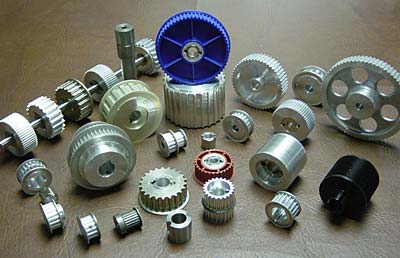Your timing pulleys are likely to be different in some ways from those used by others. You will use yours in different ways, under different conditions, effectively creating a unique set of performance requirements that must be fully met. Understanding the many nuances of material selection takes significant expertise, and getting it wrong has repercussions. No one wants to see their machinery come to a screeching halt, sustaining untold damage in the process, simply because a timing pulley was made of the wrong material. Catastrophic failure isn’t pretty.
Your priorities might be weight reduction and quiet operation, making either nylon or Delrin (a form of plastic also known as acetal resin) a logical choice. Perhaps your timing pulley will require more structural strength, need a bit more long-term durability, or better heat-handling capabilities, making aluminum or stainless steel more viable choices. Of course, it’s certainly not out of the question that your application might require a solid combination of all these attributes.
When confronted with mission-critical choices such as these, how do you know which option is the correct one?
Let’s say your application requires light weight, but also strength and high heat-handling characteristics; a material like Delrin clearly wins the battle over nylon. However, if either the temperature or stress of the load is simply too high for plastics, you’ll probably have to move over to aluminum or steel. If that becomes your logical choice, the pulley’s design will have to ensure the added weight will not become a limiting factor.
This material selection and design process requires a solid understanding of both the benefits and the limitations of the various materials from which we can manufacture your timing pulleys. Our engineers and machinists have the expertise to help you design the perfect custom timing pulley and manufacture it from the material best suited for the job at hand.


